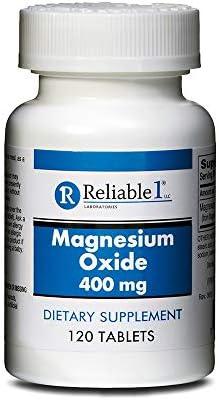In the sprawling landscape of health and wellness, where promises of vitality and longevity are as common as the sunrise, supplements stand as both a beacon of hope and a subject of skepticism. With aisles brimming with colorful bottles, each claiming to enhance, boost, or protect, the modern consumer is faced with a perplexing dilemma: Can these promises be trusted, especially when many supplements lack the stamp of approval from the Food and Drug Administration (FDA)? As we navigate this intricate web of health claims, it becomes essential to unravel the truth behind these alluring labels and understand the implications of consuming products that operate outside the traditional bounds of regulatory oversight. This article delves into the heart of the supplement industry, exploring the potential benefits and risks, and questioning whether trust can be safely placed in these uncharted territories of wellness.
Understanding the Role of the FDA in Supplement Regulation
The Food and Drug Administration (FDA) plays a crucial role in ensuring the safety of supplements, yet its involvement differs significantly from its regulation of prescription medications. Unlike drugs, dietary supplements are not required to undergo rigorous testing or obtain FDA approval before hitting the market. This is primarily because supplements are categorized under a different regulatory framework, known as the Dietary Supplement Health and Education Act (DSHEA) of 1994. This act places the responsibility of ensuring the safety and efficacy of supplements on the manufacturers themselves.
While the FDA does not pre-approve supplements, it does have mechanisms in place to oversee their safety post-market. Key responsibilities of the FDA in this area include:
- Monitoring adverse event reports submitted by consumers and healthcare professionals.
- Conducting inspections of manufacturing facilities to ensure compliance with Good Manufacturing Practices (GMP).
- Taking enforcement action against products that are misbranded or adulterated.
- Issuing warnings and recalls for supplements that pose a significant health risk.
Thus, while the lack of pre-market approval may raise concerns, the FDA’s regulatory oversight provides a framework aimed at safeguarding public health.

The Science Behind Supplement Efficacy and Safety
Understanding the science behind supplements is crucial for discerning their efficacy and safety. The journey begins with a look at the ingredients themselves. These compounds are often derived from natural sources, but their effects can vary significantly depending on their purity, dosage, and the synergy with other components. While the FDA does not approve dietary supplements in the same way it does pharmaceuticals, many supplements undergo rigorous testing and quality control by independent labs and manufacturers committed to transparency.
- Bioavailability: How well the body absorbs and utilizes the supplement is key. Factors like formulation and delivery method play a significant role.
- Clinical Studies: Many supplements are backed by scientific studies that explore their potential benefits and risks. These studies often provide insights into how the supplement interacts with the body.
- Quality Assurance: Look for products that have third-party testing and certifications, which can serve as a testament to their safety and effectiveness.
Consumers should also be aware of the potential for interactions with medications and other supplements, making it essential to consult healthcare professionals. By considering these factors, one can make informed decisions about supplement use, even in the absence of FDA approval.

Evaluating Trust: What Consumers Should Consider
When assessing the reliability of supplements that lack FDA approval, consumers must navigate a landscape filled with both promise and uncertainty. Key factors to weigh include the reputation of the manufacturer and the ingredients’ sourcing. It’s essential to scrutinize the credibility of the company producing the supplement, as reputable brands often adhere to stringent quality controls and transparent practices.
- Third-party testing: Look for products that have undergone independent testing to verify their purity and potency.
- Ingredient transparency: Choose supplements that clearly list all their ingredients, including any fillers or additives.
- Consumer reviews: Reading testimonials and feedback from other users can provide insights into the supplement’s effectiveness and potential side effects.
Furthermore, understanding the scientific research backing the supplement’s claims can be invaluable. While the absence of FDA approval may initially seem concerning, some supplements may still offer benefits supported by clinical studies. Therefore, a balanced approach that combines thorough research with cautious skepticism can help consumers make informed decisions.

Practical Guidelines for Choosing Reliable Supplements
When selecting dietary supplements, it’s crucial to make informed choices to ensure safety and efficacy. Here are some practical guidelines to help you navigate the vast market of supplements, even those without FDA approval:
- Research the Manufacturer: Look for companies with a strong reputation in the industry. A quick online search can reveal customer reviews, third-party certifications, and any past recalls or safety issues.
- Check for Third-Party Testing: Opt for supplements that have been tested by independent organizations. These tests often verify the purity and potency of the ingredients, providing an extra layer of assurance.
- Read the Label Carefully: Ensure that the supplement lists all ingredients and their respective amounts. Be wary of proprietary blends, which may not disclose the exact quantities of each component.
- Consult Healthcare Professionals: Before starting any new supplement regimen, discuss it with a healthcare provider, especially if you have existing health conditions or are taking other medications.
By adhering to these guidelines, you can better navigate the world of supplements, making choices that support your health and well-being.

